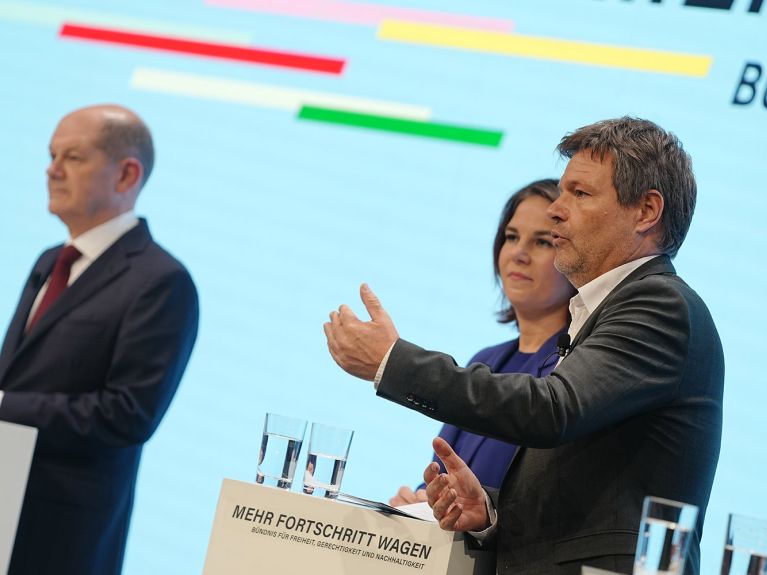The plans of the new government
The SPD, the Greens and the FDP want to form Germany’s new government coalition. These are their most important policies.

The SPD, the Greens and the FDP intend to form a new Federal Government in Germany. The Federal Chancellor will be Olaf Scholz. The new Federal Government’s foreign policy will continue to be based on the proven cornerstones: commitment to Europe, friendship with France, partnership with the USA and support for peace and understanding in the world. This multilateral approach seeks to strengthen the United Nations in political, financial and personnel terms.
Here is an overview of the most important domestic policy plans that the government coalition has now presented under the motto “Risk More Progress”:
- The government coalition described combating the coronavirus pandemic as “a central task”. A standing crisis team involving the Federal Government and the German states is to be established for this purpose; there will also be a standing team of experts based in the Federal Chancellery.
- The fight against climate change is a key issue for the new Federal Government. Germany is to generate 80% of its electricity from renewable energy sources by 2030, compared to the previous target of 65%. The phase-out of coal will be brought forward. All planning procedures connected with the construction of electricity grids, wind turbines and infrastructure will be dramatically speeded up. The Economics Ministry will also become Germany’s Climate Ministry.
- The minimum wage in Germany will rise to 12 euros per hour. It is currently pegged at 9.60 euros. This increase will benefit 10 million people.
- There will be a vocational training guarantee for all school leavers. The system of financial support for apprentices and students, BAföG, will be reformed.
- The voting age will to be reduced to 16 years of age for elections to the Bundestag and the European Parliament. Previously it was 18.
- A total of 400,000 apartments a year are to be built to stop housing becoming more and more expensive. A quarter of them will be publicly subsidised and available at favourable rents. It is also planned to prolong the rent brake, which keeps rents within locally defined comparative limits.
- Refugees will be able to bring their family members to Germany more easily in future. Family reunification will be made less difficult for this group.
- The level of retirement pensions is to remain stable. The current rate is 48%. This is the level of pension after payment of contributions for 45 years in comparison to an average income. Until now, pensions in Germany have been financed in a pay-as-you-go system based on contributions and government subsidies. The retirement pension insurance system will also be partially financed by investments on the capital market in future.
- Research and development funding is to be increased. Spending as a proportion of gross domestic product (GDP) is to rise from roughly 3.2% (110 billion euros) to 3.5%.
- The various public benefits for children are to be combined in future in a system of basic child support. Children’s rights are to be protected under the Basic Law.


